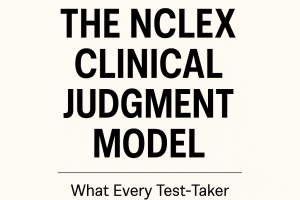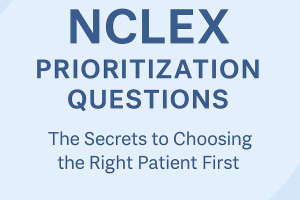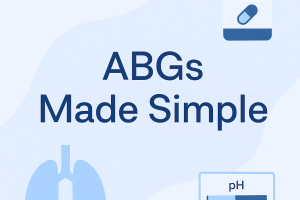ANXIETY, DEPRESSION, AND SUBSTANCE ABUSE: NCLEX ESSENTIALS

Anxiety, depression, and substance abuse are critical mental health topics on the NCLEX and play a significant role in nursing care. Recognizing symptoms, understanding treatment approaches, and knowing how to respond are essential skills for nurses, as they are often on the front line of mental health care. In this guide, we’ll explore what you need to know about anxiety, depression, and substance abuse, focusing on the essentials that can help you provide informed, compassionate care.
1. Anxiety Disorders: Understanding and Care
Anxiety disorders are among the most common mental health conditions, with symptoms ranging from mild worry to severe panic attacks. For the NCLEX, it’s important to recognize different types of anxiety disorders, understand appropriate nursing interventions, and know therapeutic communication strategies.
Types of Anxiety Disorders Commonly Encountered:
• Generalized Anxiety Disorder (GAD): Characterized by excessive, uncontrollable worry about various aspects of life.
• Panic Disorder: Involves sudden, repeated attacks of intense fear or discomfort, often without an identifiable trigger.
• Social Anxiety Disorder: Fear of social or performance situations that could lead to embarrassment.
• Phobias: Intense, irrational fears related to specific objects or situations, like fear of flying or heights.
Nursing Interventions for Anxiety:
• Therapeutic Communication: Use open-ended questions and a calm, reassuring tone to encourage patients to share their feelings.
• Breathing and Relaxation Techniques: Teach patients techniques like deep breathing and progressive muscle relaxation to help them manage acute anxiety.
• Structured Environment: Minimize external stressors in the patient’s environment to reduce triggers of anxiety.
• Medication Management: Be familiar with medications such as benzodiazepines and SSRIs, and monitor for side effects like sedation and risk of dependence with some medications.
2. Depression: Recognizing Symptoms and Providing Support
Depression affects an individual’s mood, physical health, and quality of life, often requiring a multifaceted treatment approach. Nursing care for depression includes recognizing symptoms, providing a supportive environment, and ensuring adherence to treatment plans.
Common Symptoms of Depression:
• Persistent sadness or a low mood.
• Loss of interest in activities once enjoyed.
• Changes in sleep, appetite, and energy levels.
• Feelings of worthlessness or guilt, difficulty concentrating, and, in severe cases, thoughts of suicide.
Nursing Interventions for Depression:
• Therapeutic Communication: Show empathy and avoid minimizing the patient’s feelings. Statements like “I understand this is hard for you” can create a safe space.
• Safety and Monitoring: In severe cases, monitor patients for suicidal ideation, especially when initiating antidepressants, as energy levels may improve before mood does, increasing the risk of self-harm.
• Promote Routine and Activity: Encourage small steps towards routine activities and social engagement. Physical activity, even brief, can sometimes help alleviate symptoms.
• Medication Education: Explain the importance of consistent medication use, as many antidepressants require several weeks to show efficacy. Common medications include SSRIs, SNRIs, and atypical antidepressants.
3. Substance Abuse: Assessment and Nursing Interventions
Substance abuse, often co-occurring with anxiety and depression, can involve alcohol, prescription drugs, or illicit substances. Substance abuse treatment requires a non-judgmental, supportive approach to help patients move toward recovery.
Signs and Symptoms of Substance Abuse:
• Physical signs such as weight changes, dilated pupils, or unusual injuries.
• Behavioral changes, including mood swings, isolation, or financial issues.
• Frequent excuses or denial about substance use.
Nursing Interventions for Substance Abuse:
• Motivational Interviewing: Engage patients in a conversation about change, helping them recognize the benefits of quitting or reducing use.
• Detoxification Support: For some substances, detox can be dangerous and requires medical supervision. Nurses should monitor vital signs, hydration, and signs of withdrawal.
• Referral to Support Programs: Direct patients to counseling or support groups such as Alcoholics Anonymous (AA) or Narcotics Anonymous (NA).
• Education on Triggers and Relapse Prevention: Help patients identify triggers that may lead to substance use and encourage the development of healthy coping mechanisms.
Sample NCLEX-Style Questions and Answers
To help reinforce your understanding, here are sample NCLEX-style questions related to anxiety, depression, and substance abuse:
Question 1:
A nurse is assessing a patient with generalized anxiety disorder (GAD). Which statement from the nurse would best support therapeutic communication?
• A. “You shouldn’t worry so much; everything will be fine.”
• B. “I understand that you feel overwhelmed. Can you tell me more about what’s on your mind?”
• C. “Why are you worried about something that may not even happen?”
• D. “Let’s focus on the positive things happening in your life right now.”
Answer:
B. “I understand that you feel overwhelmed. Can you tell me more about what’s on your mind?” This open-ended question encourages the patient to share their feelings and demonstrates empathy, a key aspect of therapeutic communication.
Question 2:
A nurse is caring for a patient with major depressive disorder who has been prescribed an SSRI. What teaching point should the nurse prioritize?
• A. “Your medication will start working within a few days.”
• B. “If you feel better after a week, you can stop taking the medication.”
• C. “It may take several weeks to feel the full effect of this medication.”
• D. “You may feel drowsy after taking this medication, so take it at bedtime.”
Answer:
C. “It may take several weeks to feel the full effect of this medication.” Educating patients on the timeline of antidepressants is crucial to prevent early discontinuation due to perceived ineffectiveness.
Question 3:
A patient in the emergency department shows signs of alcohol withdrawal, including tremors, anxiety, and elevated heart rate. What is the nurse’s priority intervention?
• A. Administering a sedative as ordered.
• B. Encouraging the patient to eat a nutritious meal.
• C. Teaching the patient about the dangers of alcohol use.
• D. Referring the patient to an alcohol support group.
Answer:
A. Administering a sedative as ordered. Managing withdrawal symptoms with medication, as ordered, is the priority to ensure patient safety, especially with alcohol withdrawal, which can lead to serious complications like seizures.
Conclusion
Understanding anxiety, depression, and substance abuse is crucial for delivering effective, compassionate nursing care. By recognizing symptoms, applying therapeutic communication, and providing appropriate interventions, nurses can significantly improve patient outcomes in mental health settings. For the NCLEX, focus on recognizing signs, prioritizing patient safety, and applying evidence-based interventions.
Incorporating these NCLEX essentials into your studies can help you approach each mental health scenario with confidence and skill






